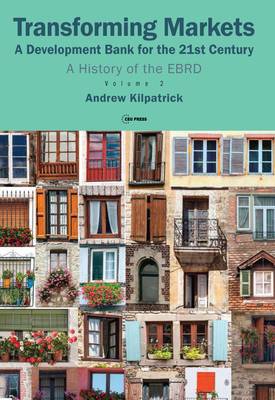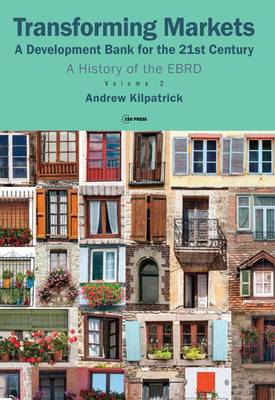
- Afhalen na 1 uur in een winkel met voorraad
- Gratis thuislevering in België vanaf € 30
- Ruim aanbod met 7 miljoen producten
- Afhalen na 1 uur in een winkel met voorraad
- Gratis thuislevering in België vanaf € 30
- Ruim aanbod met 7 miljoen producten
Zoeken
Transforming Markets
A Development Bank for the 21st Century. a History of the Ebrd, Volume 2
Andrew Kilpatrick, Anthony Williams
Paperback | Engels
€ 49,95
+ 99 punten
Omschrijving
The second volume of the history of the European Bank for Reconstruction and Development (EBRD) takes up the story of how the Bank has become an indispensable part of the international financial architecture. It tracks the rollercoaster ride during this period, including the Bank's crucial coordinating role in response to global and regional crises, the calls for its presence as an investor in Turkey, the Middle East and North Africa and later Greece and Cyprus, as well as the consequences of conflicts within its original region. It shows how in face of the growing threat of global warming the EBRD, working mainly with the private sector, developed a sustainable energy business model to tackle climate change.Transforming Markets also examines how the EBRD broadened its investment criteria, arguing that transition towards sustainable economies requires market qualities that are not only competitive and integrated but which are also resilient, well-governed, green and more inclusive. This approach aligned with the 2015 Paris Agreement and the international community's 2030 Agenda for Sustainable Development, with its core set of 17 sustainable development goals. The story of the EBRD's own transition and rich history provides a route map for building the sustainable markets necessary for future growth and prosperity.
Specificaties
Betrokkenen
- Auteur(s):
- Uitgeverij:
Inhoud
- Aantal bladzijden:
- 496
- Taal:
- Engels
Eigenschappen
- Productcode (EAN):
- 9789633864111
- Verschijningsdatum:
- 15/12/2021
- Uitvoering:
- Paperback
- Formaat:
- Trade paperback (VS)
- Afmetingen:
- 152 mm x 229 mm
- Gewicht:
- 657 g

Alleen bij Standaard Boekhandel
+ 99 punten op je klantenkaart van Standaard Boekhandel
Beoordelingen
We publiceren alleen reviews die voldoen aan de voorwaarden voor reviews. Bekijk onze voorwaarden voor reviews.











